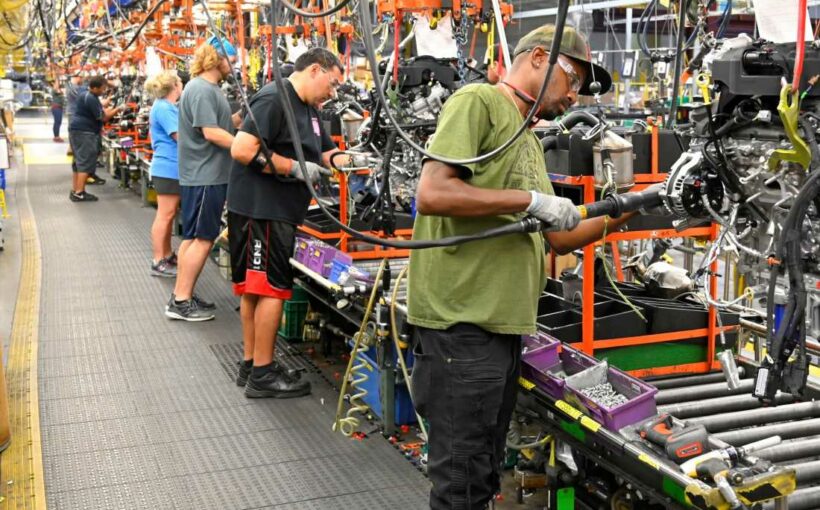- GM's Spring Hill Assembly plant will return to regular production on Monday instead of April 26, a week earlier than initially announced Thursday by the company.
- The facility builds the GMC Acadia and Cadillac XT5 and XT6 crossovers.
- GM also will not halt production next week of the Chevrolet Blazer at a plant in Mexico, which was announced last week due to the chip shortage.
DETROIT – General Motors is restarting production sooner than expected at a crossover plant in Tennessee after supplies improved of the semiconductor chips needed to produce vehicles at the facility.
The automaker's Spring Hill Assembly plant will return to regular production on Monday instead of April 26, a week earlier than initially announced Thursday by the company. The facility builds the GMC Acadia and Cadillac XT5 and XT6 crossovers.
A GM spokesman attributed the change in scheduling to near-term improvements in supplies allowing the automaker to avoid the production impact at the plant. The United Auto Workers union informed Spring Hill's more than 2,800 hourly workers of the change in plans Tuesday.
The company also will not halt production next week of the Chevrolet Blazer at a plant in Mexico, which was announced last week due to the chip shortage. Other plant shutdowns due to the parts disruption in Michigan, Kansas and Canada remain unchanged.
"Following our announcement last Thursday, April 8, GM's supply chain organization has made strides working with our supply base to mitigate the near-term impacts of the semiconductor situation on both Spring Hill Assembly and Ramos Assembly," GM said in an emailed statement.
Automotive executives have characterized the chip shortage as fluid. GM, Ford Motor and others have said the shortage will cut billions off their earnings in 2021.
Semiconductors are key components in automotive used in infotainment, power steering and braking systems, among other things. As multiple plants shuttered last year due to Covid, suppliers directed semiconductors away from automakers to other industries, creating a shortage after consumer demand snapped back stronger than expected. The parts can contain several different sizes and types of chips.
The change in fortune for GM, while unrelated, comes a day after CEO Mary Barra and other business leaders from automotive, tech and a variety of sectors met with President Joe Biden to discuss the ongoing semiconductor chip shortage.
After the meeting, GM, Stellantis (formerly Fiat Chrysler) and a lobbying group for the Detroit automakers issued statements saying they were grateful the Biden administration held the meeting and was making the issue a priority. They said they looked forward to working Biden to resolve the shortage as well as long-term safeguards for supplies of such parts.
Source: Read Full Article
